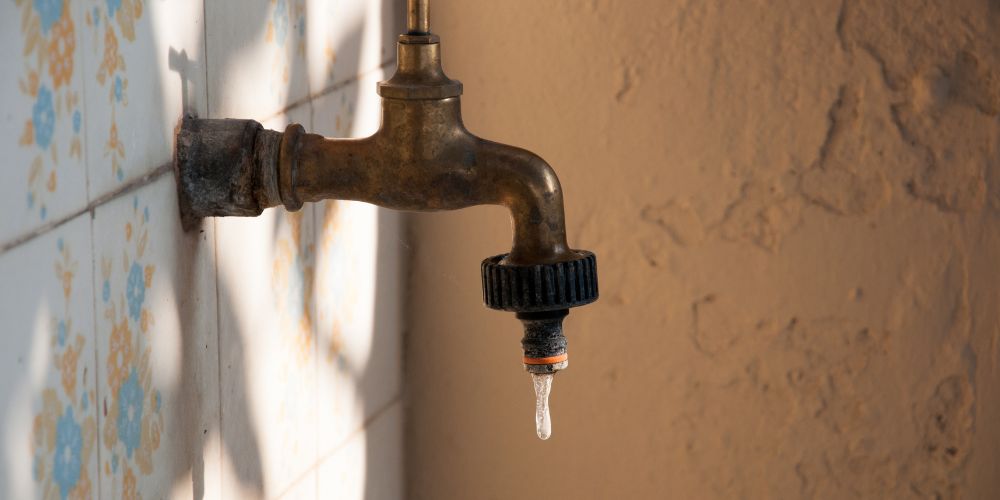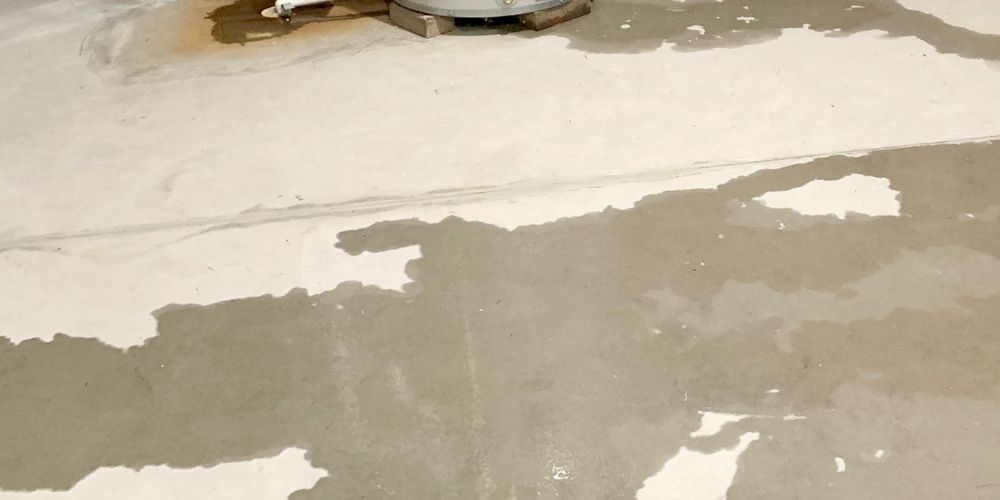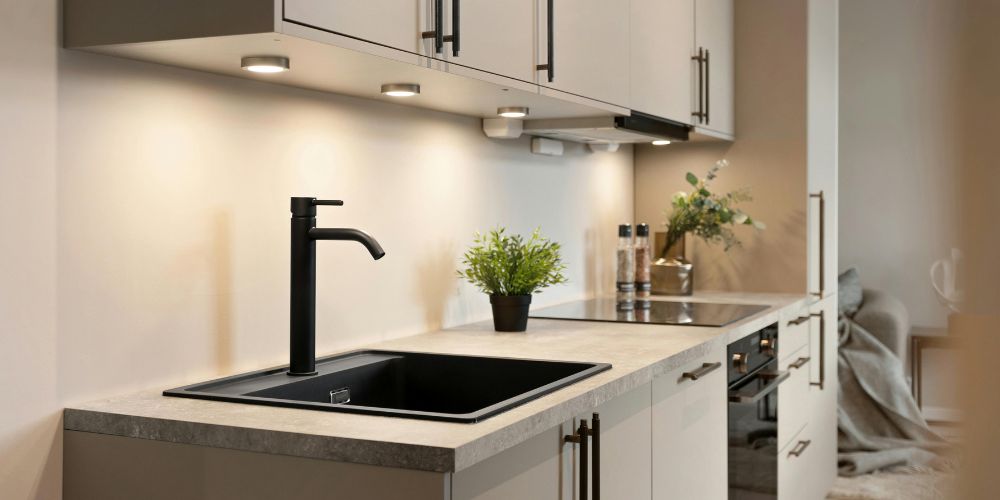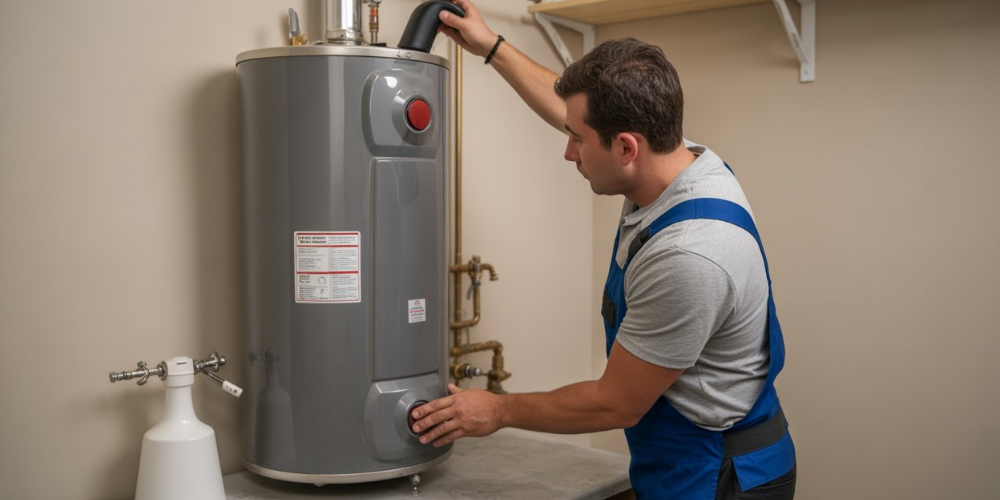Hard water is a widespread issue for many homeowners, especially in Texas. It’s characterized by water with high dissolved minerals like calcium and magnesium. These minerals can lead to several problems for your plumbing and appliances.
You might notice white residue on faucets and drains, but the problem extends deeper. This residue indicates mineral buildup that can be tough to remove. However, the visible residue is just the tip of the iceberg. Over time, these mineral deposits accumulate in your plumbing, gradually clogging pipes, hoses, and drains.
Hard water can damage your plumbing and appliances in several ways, including reduced efficiency and increased wear and tear. Solutions like installing a water softener can help prevent and manage mineral buildup, ensuring your plumbing and appliances remain in good condition.
By understanding and addressing the impact of hard water, you can take effective steps to protect your home and extend the lifespan of your plumbing system and appliances.
What is Scale Deposits?
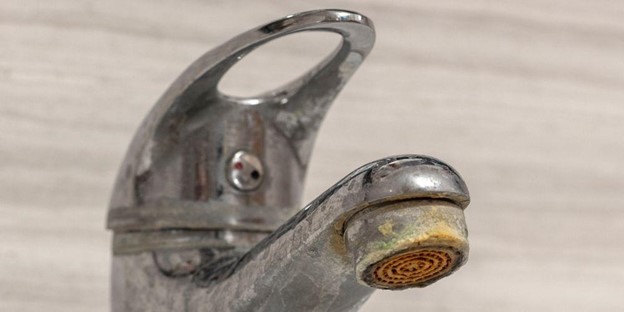
Scale, or limescale, is a white, chalky residue that forms in places where water collects or flows, especially when it’s heated. You’ll often see it around your shower head, faucets, tubs, sinks, and inside appliances that use hot water, like your water heater or coffee maker. Even though you can’t see inside your pipes, scale is likely building up there too. This buildup can occur whether you have city water or well water.
Top 10 Hard Water Affects On Your Plumbing and Appliances
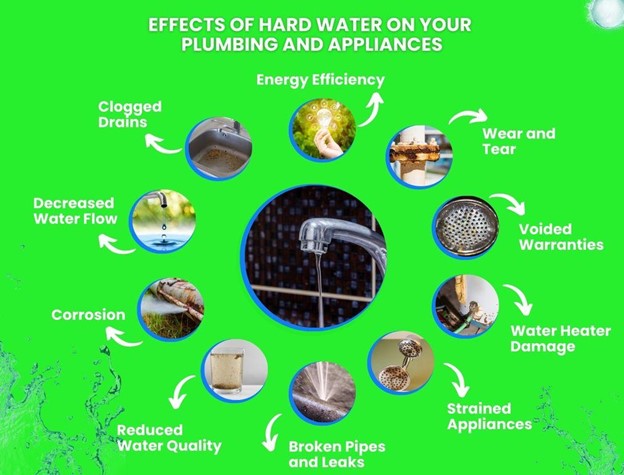
1. Clogged Drains
Hard water minerals like calcium and magnesium can slip past your drain screen and stick to the inside of your pipes. Over time, these deposits build up and cause clogs, making your drains slow and your sinks, tubs, and showers prone to backups. Regular drain cleaners might not fully clear the buildup so the issue can persist.
2. Decreased Water Flow
If your faucet runs slowly even with the valve fully open, hard water might be the culprit. Mineral deposits in your pipes can restrict water flow and increase pressure, leading to inefficient water delivery and possible backflow issues.
3. Corrosion
Calcium and magnesium can corrode metal pipes and fixtures, especially in older homes. This corrosion can lead to leaks, pipe damage, and discolored water. Over time, it can severely degrade your plumbing system, causing extensive and costly repairs.
4. Reduced Water Quality
Hard water can interfere with soaps and detergents, making cleaning dishes, clothes, and surfaces harder. This inefficiency means you’ll need more cleaning products, and your appliances will work harder, potentially reducing their lifespan and effectiveness.
5. Broken Pipes and Leaks
Hard water causes corrosion and mineral buildup inside pipes, leading to leaks and pipe breaks. As mineral deposits block water flow, pressure builds up, increasing the risk of pipe failure and leaks.
6. Energy Efficiency
Mineral deposits in your appliances can lower their energy efficiency. Appliances like dishwashers and washing machines may need longer cycles to clean effectively, leading to higher energy bills. Investing in a water softener can save money by improving efficiency and reducing utility costs.
7. Wear and Tear
Hard water causes deposits in appliances, leading to corrosion, mold, and premature breakdown. This wear and tear can shorten the lifespan of your appliances, sometimes by several years.
8. Voided Warranties
Mineral buildup from hard water can potentially void appliance warranties. Manufacturers might deny claims if they find evidence of improper maintenance or damage caused by hard water deposits.
9. Water Heater Damage
Hard water makes your water heater work harder to heat water, increasing energy costs and reducing the heater’s lifespan. Softening your water can extend the life of your water heater and cut down on utility bills by up to 30%.
10. Strained Appliances
Hard water can make your major appliances, like your water heater, dishwasher, and refrigerator, work harder than they should. The scale buildup from hard water can clog the pipes and valves in these appliances, reducing water flow and causing leaks. This leads to costly repairs and part replacements. Hard water can cut the lifespan of your appliances by 30% to 50% due to the extra wear and tear. Plus, it can raise your energy bills by up to 29%, as your appliances have to work much harder to function efficiently.
Protect your home and appliances from the impacts of hard water with effective solutions. Regular maintenance and a water-softening system can help you avoid these problems and keep your home running smoothly.
How Scale Build-Up Impact Your Plumbing and Reduce Water Pressure?
As scale builds up inside your pipes, it gradually narrows the space available for water to flow through. This restricted flow can cause a range of issues in your home’s plumbing system.
One common problem is slow drains. As the pipe diameter shrinks, water struggles to drain properly, leading to slow-moving drains and even standing water in sinks and tubs.
Reduced water pressure in showers and faucets is another result. With scale blocking the flow, less water can pass through at once, making everyday tasks like washing hands or showering less efficient and pleasant.
In severe cases, scale can clog pipes entirely, causing a complete blockage. This can lead to backups in your plumbing, requiring costly repairs and possibly causing water damage to your home. It’s important to address scale buildup early to avoid these issues.
Corrosion and Fixture Damage
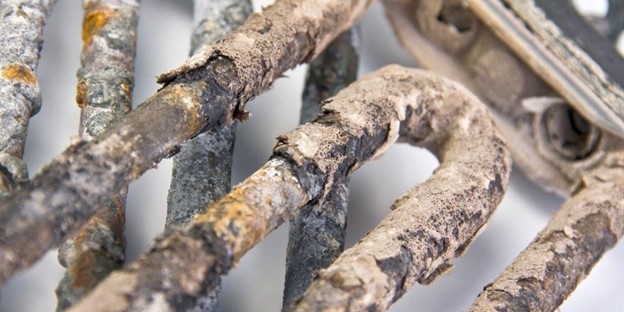
Hard water, which contains minerals like calcium and magnesium, can cause serious damage to your fixtures over time. These minerals can react with metal surfaces, leading to rust and corrosion. This not only affects how your fixtures look by causing stains and discoloration but also weakens them, making them more prone to damage.
Hard water also wears down seals and washers in fixtures more quickly, leading to water leaks. Once these components are damaged, water can start leaking around the edges, potentially causing water damage to the surrounding areas.
In short, hard water can corrode your fixtures and reduce their performance. Addressing hard water in your home helps protect your fixtures, keeping them functional and looking good for longer.
How Can You Protect Your Home from Hard Water Damage?
In Texas, the state’s unique geological makeup can lead to areas with water high in calcium and magnesium, commonly known as hard water. If not treated properly, hard water can cause damage to your home’s plumbing system over time.
If you have hard water in your home, there’s no need to settle for it. Whole-house systems can fix the issue by treating all the water that enters your home. Whole-house filtration systems use robust filters to remove mineral particles from your water, as well as contaminants like pathogens, toxic metals, and pesticides.
This improves your water quality, which can lead to healthier skin and hair and help your appliances last longer. Water softeners focus on removing calcium and magnesium from your water. They do this through a process called ion exchange. Water flows through a tank filled with resin beads that remove these minerals chemically.
This process doesn’t physically filter out the minerals but changes them so they don’t cause problems in your plumbing and appliances. To find out how hard your water is, check your city’s latest water report. If you find you have hard water, investing in a whole-house filtration system or a water softener can help extend the life of your appliances, improve your family’s health, and reduce your water and energy bills.
Can Hard Water Ruin Your Pipes?
Yes, hard water can ruin your pipes over time and be tough on your plumbing system. Over time, the minerals in hard water can clog pipes, which can reduce water pressure, create clogs, and even lead to leaks or burst pipes in severe cases. It also leaves stains on sinks, tubs, and fixtures, making them look unsightly. Hard water can also damage your water heater by causing corrosion, which may eventually lead to system failure.
Final Thoughts:
Hard water can have a significant impact on both your plumbing and appliances. Scale buildup from hard water can lead to clogged pipes, reduced water pressure, and increased energy bills. To combat these issues, it’s crucial to take proactive measures to protect your home. Using a water softener can help reduce mineral deposits, while regular maintenance of your plumbing and appliances can keep things running smoothly.
By addressing hard water problems early and implementing effective solutions, you can extend the lifespan of your appliances, improve water pressure, and enjoy cleaner, more efficient plumbing. For a comprehensive approach to managing hard water and ensuring your home remains in top condition, trust Plumbsmart to provide expert solutions and exceptional service. Contact us today to learn more about how we can help!


